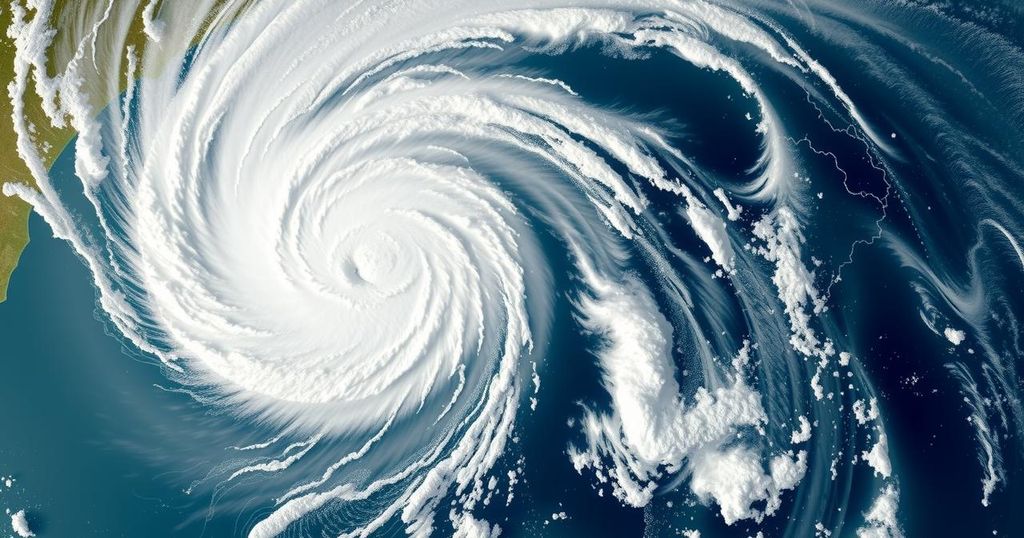Impact of Tropical Cyclone Chido on Northern Mozambique: Situation Report
Tropical Cyclone Chido hit Mozambique on December 15, 2024, causing severe destruction in Cabo Delgado and neighboring provinces. Over 23,598 homes were destroyed, and many health facilities suffered significant damage, with urgent humanitarian needs rising amid infrastructure challenges. The immediate response requires coordinated efforts to address health, water, and shelter crises as recovery efforts begin.
Tropical Cyclone Chido made landfall in the Mecufi district of Cabo Delgado Province, Mozambique, on December 15, 2024, at approximately 6:20 a.m. The cyclone brought devastating heavy rains of up to 250 mm within 24 hours and winds reaching 180 km/h. By December 16, Chido had moved to Malawi, with expectations of dissipating in Zimbabwe by December 17. Cabo Delgado, alongside Nampula and Niassa provinces, experienced severe impacts, and to a lesser extent, Tete and Northern Manica were also affected.
Cabo Delgado Province faced significant devastation, particularly in the districts of Mecufi, Chiure, and Pemba. Preliminary assessments indicate that around 23,598 homes have been destroyed, with 149 schools affected and critical damage to 37 health facilities. There are widespread challenges in electricity, water supply, and internet connectivity following the cyclone. Although Pemba airport temporarily closed on the day of the cyclone’s landfall, it has since reopened.
In Mecufi district, nearly all homes suffered damage, leaving 400 families homeless. Emergency assessments confirmed 50 injuries and 16 fatalities. Healthcare is severely compromised, as medical professionals are forced to work under poor conditions in makeshift locations. Ambulances are operational, but road conditions are critical, complicating patient transfers. In Chiure, water supply shortages have created an urgent situation, with no access to water for approximately 3,000 families in Megaruma. The Chiúre Rural Hospital reports only 30% of health services available, and overall accommodation facilities for displaced individuals are lacking.
The Metuge district remains challenging to access, with 50% shelter destruction reported in Metuge sede, while areas such as Nalia and Mieze face total destruction. Pemba district is managing three accommodation centers, but available support appears insufficient, especially among the already vulnerable populations in Paquitequete. Warnings about urban flooding in Pemba City specifically highlight areas such as Bairro Cariaco and Alto Chuiba as at risk.
The situation following Tropical Cyclone Chido highlights the urgent need for humanitarian assistance and infrastructural restoration in affected regions, as the communities face ongoing challenges in recovery and resilience.
On December 15, 2024, Tropical Cyclone Chido struck Mozambique, significantly impacting regions such as Cabo Delgado, Nampula, and Niassa. The cyclone produced catastrophic rainfall and wind speeds that led to widespread destruction of homes, schools, and health facilities. The immediate aftermath showed a dire humanitarian situation, with injuries and fatalities recorded and critical damage to infrastructure and healthcare systems. Relief efforts are essential, given the serious risks to health and safety.
In summary, Tropical Cyclone Chido has caused catastrophic damage in several provinces of Mozambique, with Cabo Delgado suffering the most. The destruction of homes, schools, and health facilities, coupled with ongoing challenges in water supply and healthcare access, presents serious humanitarian concerns. Urgent recovery efforts are required to support the affected communities and restore essential services.
Original Source: reliefweb.int




Post Comment